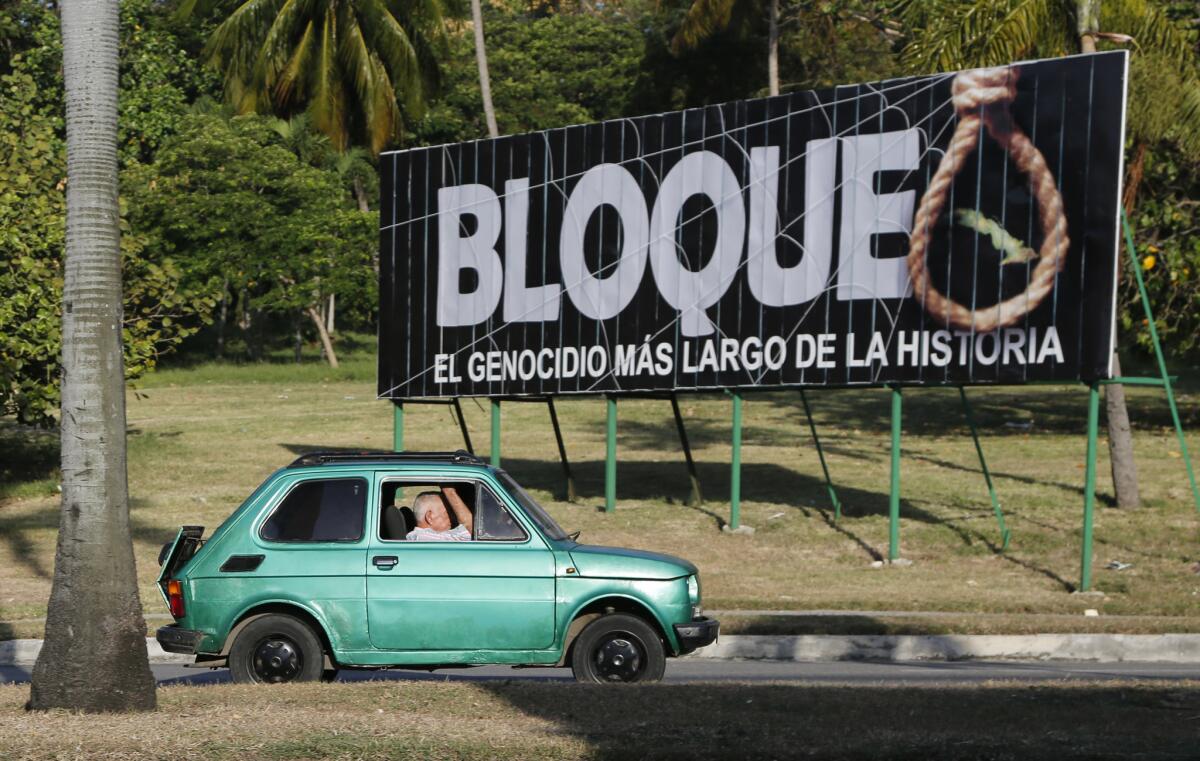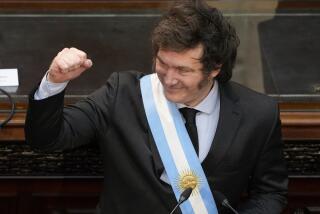Obama, Castro chat about opening embassies in step to normal ties

- Share via
Reporting from Panama City, Panama — Even before the Summit of the Americas got started here Friday, Presidents Obama and Raul Castro got on the phone.
They chatted Wednesday evening about opening up embassies in each other’s countries and other points of “diplomatic normalization,” the White House confirmed Friday.
It was the latest sign of gradually improving relations between the two Cold War enemies and an apparent prelude to “interaction” here at the meeting of the hemisphere’s leaders.
This is the first time Cuba is participating in a Summit of the Americas, a gathering held every three years. Cuba’s inclusion came as a result of pressure from the rest of Latin America and the decision announced in December by Obama and Castro to reestablish diplomatic ties after more than 50 years of enmity.
“Cuba’s participation does signal a new chapter,” said Ben Rhodes, the White House deputy national security advisor.
“We are in new territory here,” he added, alluding both to the phone call and the meeting Thursday night of Secretary of State John F. Kerry and Cuban Foreign Minister Bruno Rodriguez -- the first such meeting, Rhodes said, in 57 years.
Obama and Castro spoke to each other by telephone in December, in connection with the announcement, and have met briefly once. But there is wide anticipation that they may have their first substantive sit-down here at the margins of the summit.
Rhodes acknowledged that serious differences remain between the two nations and will continue even after the opening of embassies. The process that would lead to the U.S. removing Cuba from its list of states that sponsor terrorism -- a key demand from Havana -- is advancing but is not yet complete, he said.
He also criticized Cuban pro-government elements who scuffled with Cuban dissidents this week during a parallel summit for “civil society.” Both groups have engaged in persistent shouting matches and even came to fisticuffs at one point. Rhodes said such action was “grossly inconsistent with the spirit of dialogue” of the summit.
For more news out of Latin America, follow @TracyKWilkinson on Twitter.
More to Read
Sign up for Essential California
The most important California stories and recommendations in your inbox every morning.
You may occasionally receive promotional content from the Los Angeles Times.














